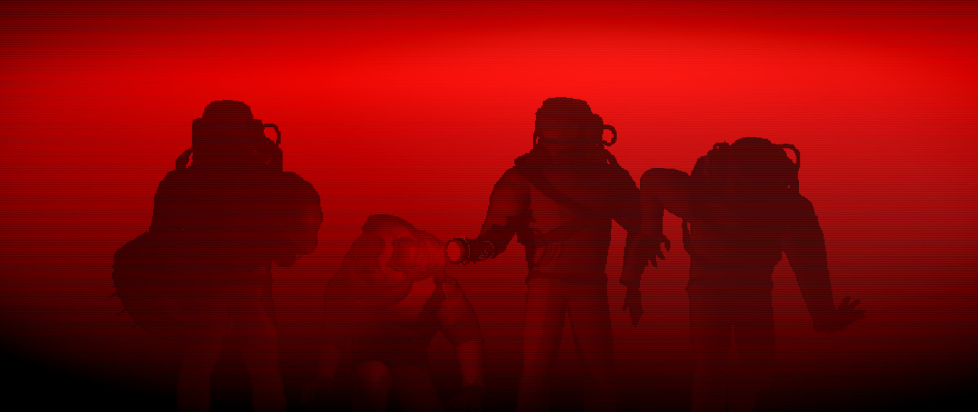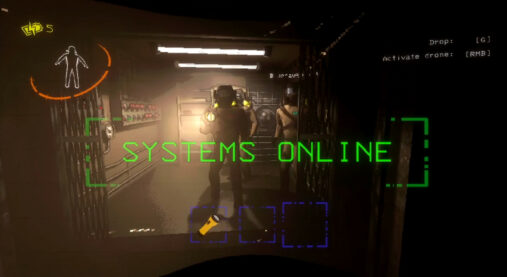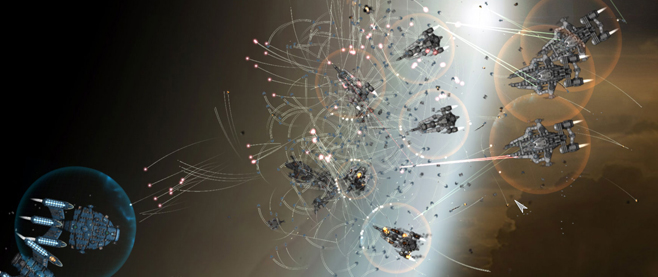
Lethal Company and the Ethos of the “Bad Job”
Indie developer Zeekerss’ latest project, the multiplayer horror co-op Lethal Company, has captivated the attention of many since its Early Access release in October 2023. This is for good reason: despite its relatively simple premise and ruleset, Lethal Company’s gameplay loop, monsters, and its potential for both organic moments of comedy and legitimate terror surmount many of its horror multiplayer contemporaries. In the past weeks, though, another aspect of its charisma has made itself apparent: Lethal Company is a game that reminds me deeply of the various “bad jobs” in retail I worked both as a teenager and while I attended university.
Regardless of the corporate branding, all of these “bad jobs” were emphatically similar: duties that fell outside of the documented job descriptions, interactions with both customers and management who fail to see the inherent value of another human being, and a surprising amount of crisis management, both for intrinsically small matters and those far beyond. In the modern day, working in retail is not only a measure of someone’s basic capacity for menial tasks but their mental fortitude to deal with the challenges that arise from the incompetence of others. In the small groups of like-minded employees that I’d find myself working with, we found a shared adage: the best days are the most mundane, and the worst days are the most exciting.
This rule (in tandem with Murphy’s Law) is at the heart of Lethal Company’s gameplay. Tasked with navigating pseudo-industrial facilities on abandoned moons in search of profit-generating scrap, the players must also contend with a number of horror-movie hostiles. For example: the bracken, which creeps up behind a player to snap their neck and drag them into the darkness; the coilhead(s), which operate under Weeping Angel rules and require at least one player to be looking at them to be neutralized; or the thumper, who sprints madly at the nearest player in an attempt to tear them apart. Each monster is inherently dangerous, but Lethal Company complicates this by spawning multiple creatures per map, and each ruleset for surviving an encounter has the potential to overlap with another or cancel one another out.
Alongside the randomized layouts of the map, this ensures that each day spent slaving away for the company is a different challenge. On some days, a player or group may not encounter the monsters wandering through the bowels of each facility. On other days, the player(s) may immediately be hounded by a combination that necessitates a quick retreat and a failure to maximize the expedition.

Lethal Company does not have any managerial force to dictate the player’s actions beyond enforcing the three-day limit on collecting the quota, which means that the employees must delegate tasks and adjust on the fly to the situations that arise. One player may stay in the ship to supervise the expedition, communicating via walkie-talkie and attempting to warn players of approaching danger. No position is entirely safe, though: even a player who stays behind as mission control is at risk of being heard by sound-detecting dog-things that can attack the ship, or fooled by a monster that mimics the actions and behavior of a real player. Without the sense that anyone beyond the small group working their shift is either willing or able to mediate, the feelings of helplessness are only intensified, particularly when players are indisposed and their allies are left managing the fallout. There are situations in Lethal Company where players may be killed off one-by-one, corpses departing into the darkness and their audio severed mid-sentence.
It is a fact of playing a horror game ad nauseam that it will at some point become less scary, and this is another facet of the gameplay loop that invokes the feeling of working a drab retail position. The game is at its most effective, for lack of a better word, at disrupting the play of the newest player among a group. For those who have played the game for more than a few hours, each scare and encounter becomes another part of the job: players will develop shorthand and vernacular for navigating threats. For example, turning around semi-regularly to check for the glowing eyes of the bracken, or making mental notes that make tunnel networks easier to navigate. Players may prioritize amongst themselves to protect the person with the most valuable scrap, even at the risk of their own demise. The difference between watching streamers playing for the first time and veteran streamers who make an effort of pushing the quota higher and higher makes for an entirely different sort of game. Experienced employees become desensitized to the horror by necessity, and instead possess a more mundane enjoyment of navigating around increasingly chaotic environments.
As of the writing of this article, Lethal Company only has a fail-state, rather than an ending. Each time the players satisfy the company by meeting their quota, they are rewarded with the promise of more difficult work. With the three-day time limit remaining stagnant, and expectations growing, players who want to continue a certain file are required to become less and less risk averse in order to continue meeting company standards. The streamer Insym, who regularly attempts to increase his team’s quota by a thousand at a time, put it best: “I’m not worth anything to the company without scrap. Either I die, or I come back with something of value.” This sentiment becomes the standard for veteran players: in order to continue to succeed in one file, the player must not only become desensitized to danger but adept at skirting it. The company line becomes internalized. The suffering becomes a natural part of the job, and only the most tolerant of such suffering are able to continue meeting the maddening standards of a job that does not respect their effort or sacrifices in the slightest.
When I think of the retail jobs that I’ve worked in the past decade, I have some distant nostalgia for the conversations and shenanigans that my coworkers and I would use to get through days. What I remember more, though, were the encounters with customers who had to be diffused and worked around, employees who were unable to handle the tension of an incredibly busy or chaotic day, and a management that only saw me as a low-wage burnout instead of a valued member of a team. The rhetoric is even the same between Lethal Company and corporate employment, sinister apathy veiled in toxically positive affirmations. Failure to hit the quota is met with “disciplinary action” to ensure further productivity – being launched into the void of space so that another team can take a turn getting chewed up and spit out.
———
Joshua M. Henson has been playing video games since Doom II at the age of four, and hasn’t shut up about them since. You can find him on twitter posting very occasionally.





